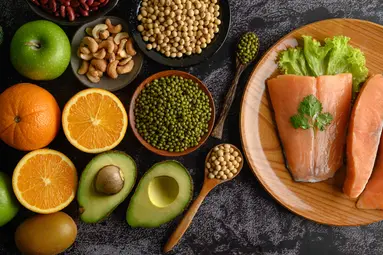Top 9 Biotin Rich Foods
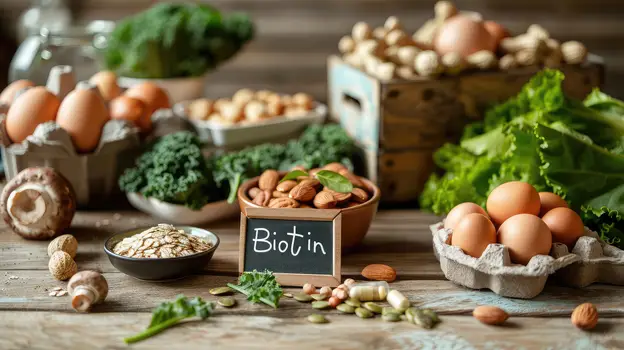
Top 9 Biotin Rich Foods
Posted on 12th Feb, 2023
Biotin (Vitamin B7) is an essential component of enzymes in the body that break down fats, carbohydrates, and other substances. Because there isn't a good test for low biotin levels, most people can tell when they have them by the symptoms, like thinning hair and a red, scaly rash around the eyes, nose, and mouth.
Let us take a look at foods that are rich in Biotin which can help prevent biotin deficiency within the body: -
List of Biotin-Rich Foods in India
Seafood and meat

One of the best sources of biotin and protein is seafood and lean meat. Did you know that cooked liver contains biotin in the amount of 27 micromilligrams? Biotin is also present in sufficient quantities in beef, pork, turkey, and red meat. Salmon and sardines are excellent choices for those looking for biotin sources that are low in fat.
Whole wheat bread

One to six micrograms of biotin are found in one slice of whole wheat bread. White bread, on the other hand, has very little biotin in it.
Eggs

Biotin is thought to be abundant in egg yolks. However, biotin deficiency can also result from excessive egg white consumption; because eggs contain an ingredient that binds a protein called avidin, making it harder for the body to distribute nutrients evenly. Additionally, egg yolks are used in many hair masks to condition and strengthen the hair.
Dairy goods

Biotin-rich dairy products like cottage cheese, yogurt, and milk are beneficial for the skin and hair.
Soybean oil

Soybeans have 60 mg of biotin in a 10-gram serving. Additionally, soy beans are a good source of protein, minerals, vitamins, and fibre. To increase their nutritional value, you can incorporate them into curries and salads.
Nuts
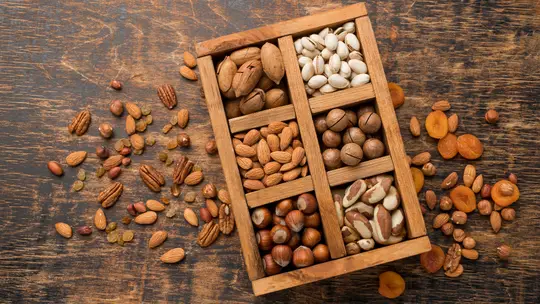
As a convenient healthy snack, cashews, hazelnuts, almonds, and pecans can satisfy the body's daily requirement for biotin.
Vegetables
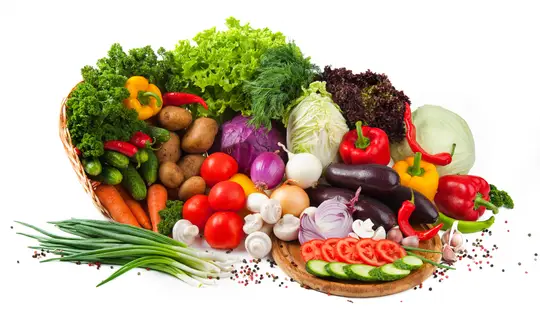
Biotin is found in onions, cucumbers, cabbage, and cauliflower, which can be cooked or steamed for a salad or as a side dish.
Fruits
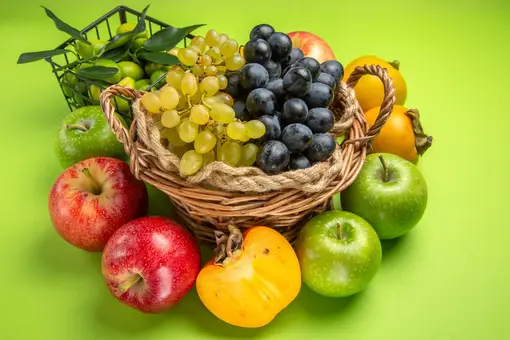
Biotin is abundant in avocado, strawberries, raspberries, and cranberries. Additionally, these fruits' antioxidants have the potential to positively impact both your health and hair. Healthy alternatives to sweet treats and desserts are fruit salads.
Sunflower Seeds
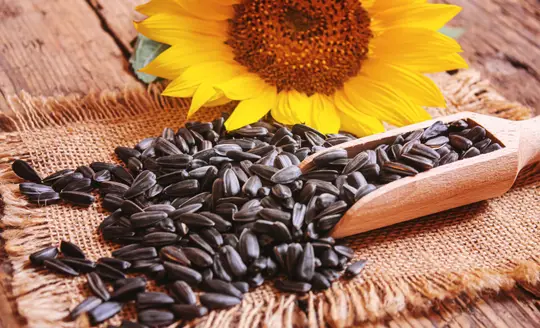
Sunflower seeds contain vitamin E, vitamin B, calcium, potassium, and magnesium in addition to biotin. As a snack or as a topping on a salad, they can be easily incorporated into one's daily diet.
Dosage
The recommended dosage for biotin varies depending on the age, gender, and health condition of an individual. The general recommended daily dosage of biotin for healthy adults is 30 micrograms. However, some health conditions may require higher doses of biotin.
For example, individuals with biotin deficiency may require higher doses of biotin supplementation. The recommended dosage for individuals with biotin deficiency is usually between 100-300 micrograms daily.
Pregnant and breastfeeding women also require higher doses of biotin. The recommended dosage for pregnant women is 30 micrograms daily, while breastfeeding women require 35 micrograms daily.
It is important to note that the tolerable upper intake level (UL) for biotin has not been established, and there is limited information on the toxicity of high-dose biotin supplements. However, high doses of biotin supplementation may interfere with laboratory test results, leading to false results.
Therefore, it is recommended to follow the recommended dosage guidelines and consult with a healthcare provider before taking high doses of biotin supplements.
Side Effects and Warnings
Biotin is generally considered safe when taken within the recommended dosage range. However, there are some potential side effects and warnings to be aware of:
- Skin rash: Taking high doses of biotin supplements may lead to the development of a skin rash.
- Acne: Some people have reported developing acne after taking biotin supplements.
- Interference with lab test results: Biotin supplements can interfere with certain lab tests, including those that measure hormone levels and thyroid function. It's important to let your healthcare provider know if you're taking biotin supplements before undergoing any lab tests.
- Pregnancy and breastfeeding: There isn't enough information available about the safety of biotin supplements during pregnancy and breastfeeding. It's best to consult with a healthcare provider before taking biotin supplements if you're pregnant or breastfeeding.
- Medication interactions: Biotin supplements can interact with certain medications, including those used to treat epilepsy and cholesterol-lowering medications. It's important to talk to your healthcare provider before taking biotin supplements if you're taking any prescription medications.
It's important to remember that these side effects and warnings are generally associated with high doses of biotin supplements. Most people who take biotin supplements within the recommended dosage range do not experience any negative side effects. As always, it's best to consult with a healthcare provider before taking any new supplements.
Conclusion
Based on the available evidence, biotin is generally safe and well-tolerated when taken within recommended dosages. However, high doses of biotin may interfere with certain lab tests, which could potentially lead to misdiagnosis and inappropriate treatment.
It is always advisable to consult with a healthcare professional before starting any new supplement regimen, especially if you have any pre-existing medical conditions or are taking any medications, to ensure that it is safe for you to take biotin and to determine the appropriate dosage for your specific needs.

Health articles from our experts

Guide To Eating for Anti-Aging Benefits and Youthful Skin

Guide To Eating for Acne-Free Skin
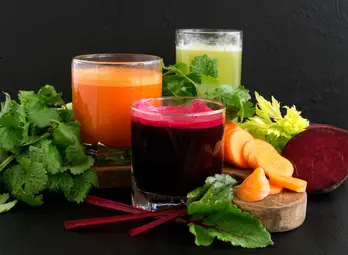
Revitalize your Dull Skin with Amla and ABC Juice
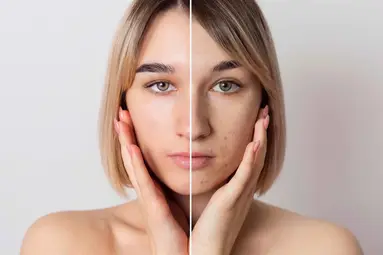
A Comprehensive Guide On How To Reduce Pigmentation

A Comprehensive Guide To Prevent Acne

Skincare Tips for Different Seasons - Adapting Your Routine to Weather Changes

CoQ10 for Skin: Benefits & Ways to Use It

5 Best Benefits Of Ashwagandha For Skin

10 Foods Rich In Glutathione
